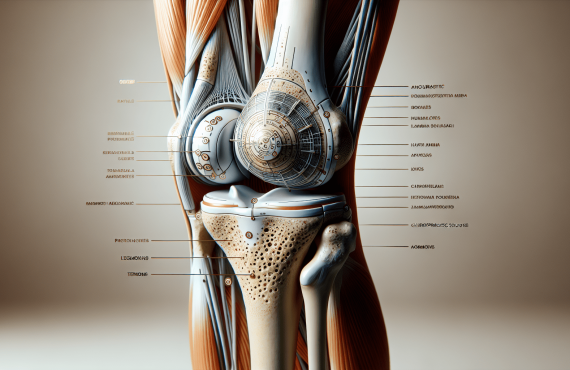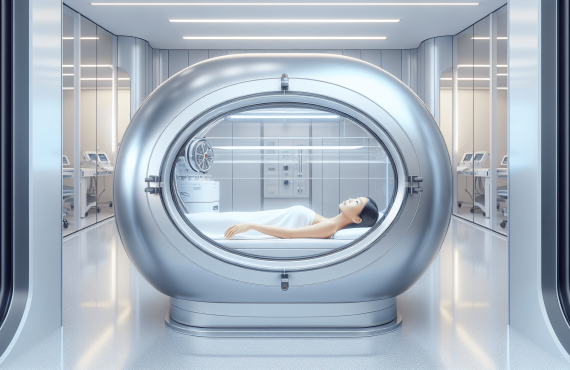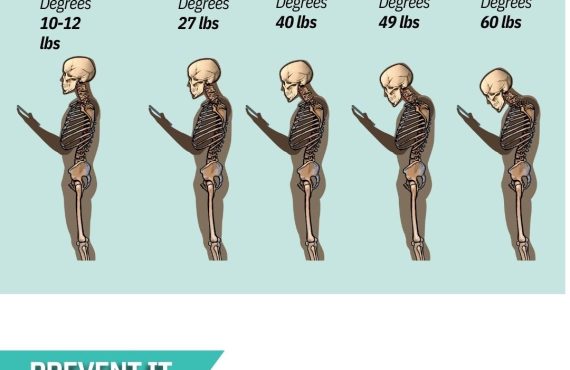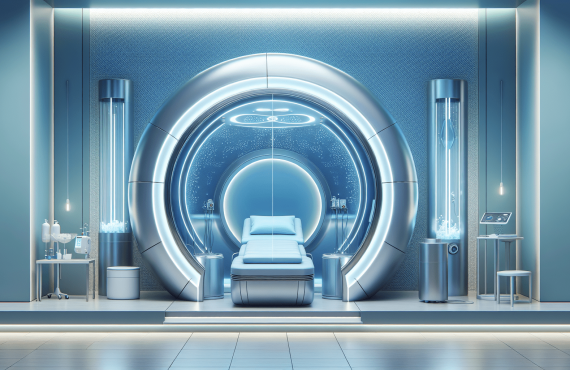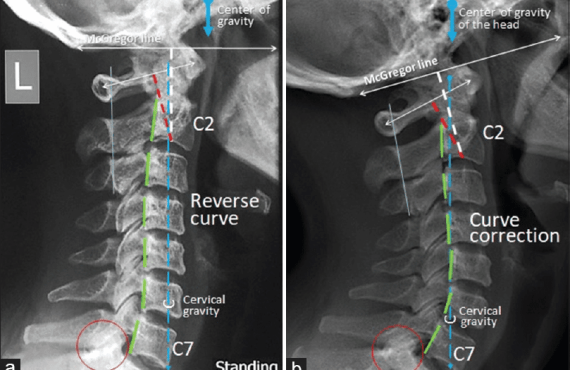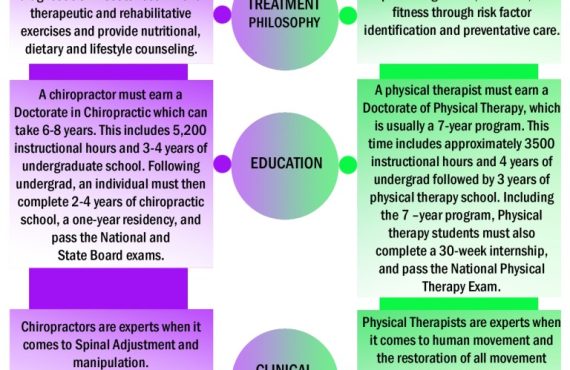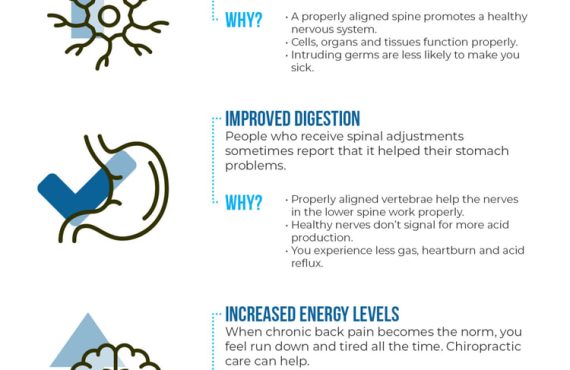Curious about the potential risks of chiropractic care? Look no further as we debunk the myths and shed light on the truth. At Henry Chiropractic, owned and operated by Dr. Craig Henry, and with the assistance of Dr. Aaron Hixon, both licensed chiropractors, a patient’s well-being and health are the utmost priority. Whether you’re seeking relief from back or neck pain or simply striving to enhance your overall wellness, they are here to help. Rest assured, we’ll address the misconceptions surrounding chiropractic care and unveil its true benefits. So sit back, relax, and allow us to debunk the risks of chiropractic care.

Table of Contents
Understanding Chiropractic Care
What is chiropractic care?
Chiropractic care is a healthcare discipline that focuses on diagnosing, treating, and preventing mechanical disorders of the musculoskeletal system, particularly the spine. Chiropractors use a hands-on approach to manipulate the body, with a primary focus on the spine, in order to restore proper alignment and promote overall health and well-being. Chiropractic care is often used in conjunction with other treatments, such as exercise, nutrition, and lifestyle modifications, to optimize patient outcomes.
The principles of chiropractic care
Chiropractic care is based on several key principles. First and foremost, chiropractors believe in the body’s innate ability to heal itself. They view the body as a self-regulating, self-healing organism, and their goal is to support and enhance this natural healing process. Chiropractors also place great importance on the relationship between the spine and the nervous system, as any misalignment or dysfunction in the spine can interfere with the proper functioning of the nervous system and negatively impact overall health. Lastly, chiropractors emphasize the importance of a holistic approach to healthcare, addressing not only the symptoms but also the underlying causes of health issues.
Types of conditions treated with chiropractic care
Chiropractic care is commonly sought for musculoskeletal conditions such as back pain, neck pain, and joint pain. However, chiropractors also treat a wide range of other conditions, including headaches, migraines, sciatica, carpal tunnel syndrome, sports injuries, and even digestive disorders. They take a comprehensive approach to healthcare, addressing the root cause of the problem rather than just providing temporary relief from symptoms.
The benefits of chiropractic care
Chiropractic care offers a multitude of benefits for patients. One of the primary benefits is pain relief. Whether it’s chronic back pain, a sports-related injury, or tension headaches, chiropractic adjustments can often provide immediate relief from pain. Additionally, chiropractic care can improve mobility and range of motion, enhance athletic performance, boost immune function, increase energy levels, promote better sleep, and improve overall quality of life. Chiropractic care is also a cost-effective and non-invasive treatment option, making it an attractive choice for many individuals seeking natural healthcare solutions.
Safety of Chiropractic Care
Is chiropractic care safe?
Chiropractic care is generally considered to be a safe and effective form of treatment. Chiropractors undergo extensive training and education to ensure they possess the necessary skills and knowledge to provide safe care to their patients. They are trained to perform spinal adjustments and other manipulations with precision and care, minimizing the risk of injury or adverse effects. However, as with any form of healthcare, there are potential risks involved, and it’s important to understand and address them.
Research on the safety of chiropractic care
Numerous studies have been conducted to assess the safety of chiropractic care, and the overall findings have been positive. A systematic review published in the Journal of Manipulative and Physiological Therapeutics found that serious adverse events associated with chiropractic care were extremely rare, with an estimated rate of less than 1 per 1 million treatments. Another study published in Spine found that the risk of experiencing a stroke following a chiropractic cervical manipulation was low, estimated to be between 1.34 and 2.68 per million treatments. These findings highlight the safety of chiropractic care when delivered by qualified professionals.
Common misconceptions about chiropractic care
Despite the extensive research supporting the safety of chiropractic care, there are still common misconceptions and misunderstandings surrounding this healthcare discipline. One of the most prevalent misconceptions is the belief that chiropractic adjustments are inherently dangerous and can cause serious harm or injury. While it is true that complications can arise, they are rare and typically result from preexisting conditions or the improper technique used by an unqualified practitioner. It is important to seek care from a licensed chiropractor who has undergone the necessary training and possesses the expertise to perform safe and effective adjustments.
Potential Risks and Side Effects
Possible risks associated with chiropractic care
As with any form of healthcare, there are potential risks associated with chiropractic care. The most common risk is the possibility of experiencing mild discomfort or soreness after an adjustment, similar to the sensation one might feel after a workout. This is typically a temporary side effect that resolves on its own within a few days. There have also been rare cases of more serious complications, such as herniated discs or aggravated nerve conditions, although these are typically the result of preexisting conditions or improper technique.
Understanding the rare but potential risks
While serious complications associated with chiropractic care are extremely rare, it is important to be aware of them. Some individuals may be at a higher risk of experiencing complications, including those with osteoporosis, spinal cord compression, fractures, or certain conditions affecting blood clotting. It is crucial to disclose your complete medical history and any relevant conditions to your chiropractor to ensure appropriate precautions are taken and the treatment plan is tailored to your specific needs.
Side effects of chiropractic care and their severity
Most side effects of chiropractic care are mild and temporary, such as soreness or stiffness in the treated area. These side effects typically resolve on their own within a few days. In rare cases, more severe side effects, such as worsening pain or neurological symptoms, may occur. If you experience any concerning or persistent side effects after a chiropractic adjustment, it is important to contact your chiropractor immediately to assess the situation and determine appropriate follow-up care.
Misconceptions and Controversies
Misinformation about chiropractic care
Despite the growing body of evidence supporting the safety and effectiveness of chiropractic care, there is still a considerable amount of misinformation and misunderstanding surrounding this healthcare discipline. Some common misconceptions include the belief that chiropractic care is based on pseudoscience, that it is not supported by evidence-based research, or that it is solely focused on spinal manipulation. These misconceptions can prevent individuals from seeking chiropractic care and potentially miss out on the benefits it can offer.
Controversial aspects of chiropractic care
Chiropractic care has faced its fair share of controversies throughout its history. One of the main controversies revolves around the use of spinal manipulations, particularly cervical manipulations, and the potential risk of stroke. While research has shown the risk to be extremely low, it is still a topic of debate and concern for some individuals. Additionally, there have been controversies surrounding the scope of practice for chiropractors, as well as differing opinions on the effectiveness of chiropractic care for certain conditions.
Addressing the misconceptions and controversies
It is crucial to address the misconceptions and controversies surrounding chiropractic care in order to provide accurate information and dispel any fears or concerns. First and foremost, chiropractic care is a legitimate healthcare discipline that is rooted in scientific principles and evidence-based practice. Chiropractors undergo extensive education and training to provide safe and effective care to their patients. It is important to seek care from a licensed chiropractor who adheres to professional standards and practices evidence-based treatments. By addressing these misconceptions and controversies, individuals can make informed decisions about their healthcare and potentially access the benefits of chiropractic care.

Choosing a Trusted Chiropractor
The importance of finding a qualified chiropractor
When seeking chiropractic care, it is essential to find a qualified chiropractor who can provide safe, effective, and ethical treatment. A qualified chiropractor should have the necessary education, training, and licensure to practice in their jurisdiction. They should also adhere to professional standards and ethics, ensuring the well-being and best interests of their patients. Choosing a trusted chiropractor can make a significant difference in the quality of care received and the overall treatment outcomes.
Certifications and credentials to look for
When researching chiropractors, it is important to look for certain certifications and credentials that indicate their level of expertise and specialization. For example, a chiropractor who is a member of the American Chiropractic Association (ACA) or the International Chiropractors Association (ICA) demonstrates their commitment to professional development and staying up-to-date with the latest advancements in the field. Additional certifications or specialized training in specific techniques or areas of focus may also be beneficial depending on individual needs.
Tips for choosing a trustworthy chiropractor
To ensure you choose a trustworthy chiropractor, consider the following tips:
-
Research their qualifications and credentials: Look for reputable chiropractic associations or organizations they are affiliated with, as well as any additional certifications or training they have obtained.
-
Read reviews and testimonials: Other patients’ experiences can provide valuable insights into the chiropractor’s expertise, professionalism, and quality of care.
-
Seek referrals: Ask your primary care physician, friends, family, or colleagues if they have any recommendations for chiropractors they trust and have had positive experiences with.
-
Schedule a consultation: Take the opportunity to meet with the chiropractor and ask questions about their approach to care, treatment options, and expected outcomes. This will help you gauge their competence and ensure you feel comfortable with them as a healthcare provider.
-
Trust your instincts: Ultimately, it is important to trust your instincts and choose a chiropractor with whom you feel a sense of trust, rapport, and mutual respect. Building a strong patient-provider relationship is crucial for successful treatment.
Evidence-Based Approaches
Research supporting the effectiveness of chiropractic care
Over the years, a growing body of research has demonstrated the effectiveness of chiropractic care for various musculoskeletal conditions. For example, a study published in the Annals of Internal Medicine found that spinal manipulation provided more effective pain relief for acute lower back pain than medication. Another study published in the Journal of Manipulative and Physiological Therapeutics showed that chiropractic care combined with exercise therapy was more effective in reducing pain and disability in patients with chronic neck pain compared to exercise therapy alone. These are just a few examples of the numerous studies supporting the efficacy of chiropractic care.
Studies on the safety and outcomes of chiropractic treatments
In addition to demonstrating efficacy, research has also focused on the safety and outcomes of chiropractic treatments. A systematic review published in Spine found that chiropractic care was associated with improvements in pain levels, physical function, and overall well-being in patients with chronic low back pain. Another study published in the Journal of Manipulative and Physiological Therapeutics found that chiropractic care was a safe and effective treatment option for children with musculoskeletal conditions, with a high level of patient satisfaction reported. These studies highlight the positive outcomes and safety profile of chiropractic treatments.
Integrative approaches for optimal results
In recent years, there has been an increasing recognition of the value of integrative approaches to healthcare, combining conventional medicine with complementary therapies such as chiropractic care. Integrative healthcare models have been shown to improve patient outcomes, reduce healthcare costs, and promote holistic well-being. By working collaboratively with medical professionals, chiropractors can provide a comprehensive and individualized approach to patient care, addressing not only the physical aspects of health but also the emotional, social, and environmental factors that contribute to overall well-being.
Collaboration with Medical Professionals
The role of chiropractors in the healthcare system
Chiropractors play an important role in the healthcare system, particularly in the management of musculoskeletal conditions. They are trained to assess, diagnose, and treat a wide range of conditions that affect the musculoskeletal system, with a strong focus on the spine and its relationship to the nervous system. Chiropractors often work in collaboration with other healthcare professionals, such as medical doctors, physical therapists, and massage therapists, to provide comprehensive care for their patients.
Collaborative efforts between chiropractors and medical doctors
Collaborative efforts between chiropractors and medical doctors can greatly benefit patients by combining the expertise and perspectives of different healthcare professionals. For example, a patient with chronic back pain may receive a referral from their primary care physician to a chiropractor for spinal adjustments, while also working with a physical therapist to strengthen and rehabilitate the affected area. By working together, these healthcare professionals can develop a coordinated and multidisciplinary treatment plan that addresses the patient’s unique needs and goals.
The benefits of a multidisciplinary approach
A multidisciplinary approach to healthcare offers numerous benefits for patients. By combining the expertise of different healthcare professionals, patients can benefit from a broader range of treatment options, increased access to various therapies, and improved coordination of care. Additionally, a multidisciplinary approach allows for a more holistic and individualized approach to patient care, taking into account the complex interplay of physical, mental, and social factors that contribute to health and well-being. By collaborating with medical professionals, chiropractors can help patients achieve optimal outcomes and enhance their overall quality of life.
Patient Experiences and Testimonials
Real-life stories of patients benefiting from chiropractic care
Countless individuals have experienced the benefits of chiropractic care and have shared their stories of improved health and well-being. From athletes seeking relief from sports injuries to individuals with chronic pain finding long-lasting relief, chiropractic care has made a positive impact on the lives of many. Real-life stories often highlight the effectiveness of chiropractic treatments in reducing pain, improving mobility, enhancing athletic performance, and promoting overall wellness.
Personal experiences debunking misconceptions
Personal experiences can also play a crucial role in debunking misconceptions and addressing concerns surrounding chiropractic care. Many individuals who initially had reservations or fears about chiropractic treatments have shared their journey of overcoming those concerns and experiencing the positive results of chiropractic care. By sharing their personal stories and dispelling myths, these individuals have helped others overcome their fears and make informed decisions about seeking chiropractic care.
Testimonials from satisfied patients
Testimonials from satisfied patients provide further evidence of the effectiveness and benefits of chiropractic care. Patients often express their gratitude for the pain relief, improved mobility, and enhanced quality of life they have experienced as a result of chiropractic treatments. These testimonials can serve as a valuable resource for individuals considering chiropractic care, offering reassurance and inspiration that positive outcomes are possible.
Understanding the Limitations
Limitations of chiropractic care
While chiropractic care can offer significant benefits for many individuals, it is important to understand its limitations. Chiropractors primarily focus on musculoskeletal conditions and spinal health, so conditions that are unrelated to the musculoskeletal system may require additional medical interventions. It is essential to have a proper diagnosis to determine the most appropriate course of treatment, and chiropractors will often refer patients to other healthcare professionals, such as medical doctors, when necessary.
Conditions that may require additional medical interventions
There are certain conditions that may require additional medical interventions beyond chiropractic care. These conditions can include but are not limited to infections, fractures, tumors, autoimmune diseases, and certain systemic conditions. Chiropractors are trained to recognize the signs and symptoms that may indicate the need for further medical evaluation and will refer patients to the appropriate healthcare professional for further assessment and management.
The importance of proper diagnosis and referral
Proper diagnosis is essential to ensure patients receive the most appropriate and effective treatment for their specific condition. Chiropractors are skilled at conducting thorough assessments to determine the underlying cause of a patient’s pain or discomfort. In cases where chiropractic care may not be the most appropriate treatment option, chiropractors will refer patients to the appropriate healthcare professional, such as a medical doctor or specialist, for further evaluation and treatment. This collaborative approach ensures that patients receive comprehensive and individualized care that addresses their specific needs.
Conclusion
In conclusion, chiropractic care is a safe and effective healthcare discipline that offers numerous benefits for individuals seeking natural, non-invasive approaches to pain management and overall wellness. While there are potential risks and misconceptions surrounding chiropractic care, extensive research supports its safety and efficacy when performed by qualified professionals. By choosing a trusted chiropractor, seeking evidence-based approaches, collaborating with medical professionals, and considering personal experiences and testimonials, individuals can make informed decisions about their healthcare and potentially experience the positive outcomes of chiropractic care. It is important to understand the limitations of chiropractic care and ensure proper diagnosis and referral when necessary. With proper care and guidance, chiropractic care can be a valuable tool in achieving optimal health and well-being. So, if you’re looking to improve your quality of life and address musculoskeletal issues, consider seeking professional chiropractic care from a qualified chiropractor like Dr. Craig Henry at Henry Chiropractic in Pensacola, Florida.






















































































